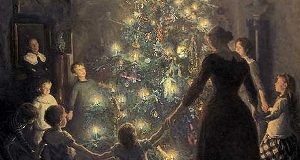All stories have an ending, but it doesn’t seem right that a story about Canadian composer and one-time big-band leader Howard Cable should have an ending. He’s got too much to tell.
With more than seven decades on the Canadian music scene Cable, a Bathurst Quay resident, has played big band music in Ontario’s cottage country, Western Canada and Northern New York State. He even did a gig in Japan.
For 15 years ending in 1986 he was the bandleader at the Imperial Ballroom in the Royal York Hotel. He joined the CBC in 1942, just eight years after the corporation began broadcasting.
In the 1960s he conducted the orchestra for the well-received Broadway musical Man of La Mancha in New York City. Following that he led the orchestra for another musical, Chu Chem.
But Chu Chem flopped and Cable was out of work. That was a Saturday night. The following Monday morning Cable got a call to come to work at Expo in Montreal.
He’s performed with Ella Fitzgerald, Tony Bennett, Duke Ellington, Peggy Lee, James Brown, and Count Basie, to name a few. “I have endless stories,” says Cable. “I could go on for hours with all the people I’ve met.”
For instance, how many people in Count Basie’s audiences would have known the performer had a mobility problem? Cable remembers how that was kept under wraps when the Count performed at the Royal York.
“We’d wheel him out to the stage and put him on his chair. We’d keep the curtain closed. Once everybody was ready we’d open the curtains and the audience would erupt in a ‘wow!’ ” says Cable.
The Bulletin visited Cable in November just days after he returned home having narrated a concert in Saskatoon and just days before he was off again to narrate another one in Halifax.
On Dec. 15 Cable marks his 95th birthday. He uses a walker to move around but with his full smile, vivid memory and chipper attitude he has the spirit of someone much younger.
It was a warm summer evening when Cable, at age 16, decided he wanted to start his own big band. He and Parkdale Collegiate classmate Fred Davis—the same Fred Davis who hosted the popular TV show Front Page Challenge for 35 years—wandered down to the Palais Royale at Sunnyside Beach,
The two sat outside. They weren’t allowed into the elegant dance hall because they didn’t have dates, says Cable. The open windows let the evening breeze in and the big band music out. The melodies affected Cable. “I said, [to Davis] ‘I think I’m going to start a big band like that.’”
So he did.
Davis wanted to join so Cable told him to get a horn. “He bought a trumpet at Simpson’s with a book of 10 easy lessons. He became pretty good,” Cable remembers. “He was my star trumpeter.” Cable played piano.
The Chateau Gai resort in Balm Beach on Georgian Bay was where Howard Cable and His Cavaliers got their start in 1939. But tragedy rained on their big dreams. A fire in 1940 ruined the resort as well as Cable’s music charts and the band’s instruments. Suffice to say, the fledgling band was out of work.
But sometimes when things go wrong they have a way of turning out right. That’s what happened for Cable. “When luck smiles on me, it is usually ear to ear,” he says.
“I got a call from Beaumaris (Yacht Club) in Muskoka. They needed a trumpet player and a pianist. I called Fred. I said do you want to go to Muskoka. He said ‘I’m in.’”
Cable remembers those days in Ontario’s cottage country with its gleaming lakes and lush woodlands as being Great Gatsbyesque.
“Beaumaris was called Millionaires Row,” says Cable. “A lot of American millionaires were up there. Boats would come up to the dock to let the people out to go and dance, and the boatsmen would stay down there like chauffeurs. It was like the Great Gatsby.”
“Beaumaris was called Millionaires Row,” says Cable. “A lot of American millionaires were up there. Boats would come up to the dock to let the people out to go and dance, and the boatsmen would stay down there like chauffeurs. It was like the Great Gatsby.”
But while the band members had fun, Cable sweated at his desk. “We lost the entire music library at Balm Beach in the fire so I was rewriting the library every day. The rest of the band was playing pool, swimming and picking up girls.”
These days Cable works more as a music narrator—rather than conductor—with concert bands and symphony orchestras. “I’ve become a living program note. I wrote the shows (concerts) that are being performed. They’re all my shows so I know the background for them.”
As Cable has said he has lots of show business stories to tell about the big band era and the personalities who made it shine. For those who grew up in those days and those who want to live it for the first time follow Cable’s blogs at www.howardcableblog.com.
One more thing: Cable wonders how today’s “so-called music lovers” will remember the “noise” they hear today. In Cable’s time audiences would tear-up listening to Nat King Cole, Tony Bennett and Danny Williams. “That’s memorable music,” says Cable. “It’s right in the memory bank.”
As for today’s music, Cable ponders: “I don’t know what the young people are going to remember 25 years from now … Rap is not music. What are they going to sing in 25 years?”
 TheBulletin.ca Journal of Downtown Toronto
TheBulletin.ca Journal of Downtown Toronto


